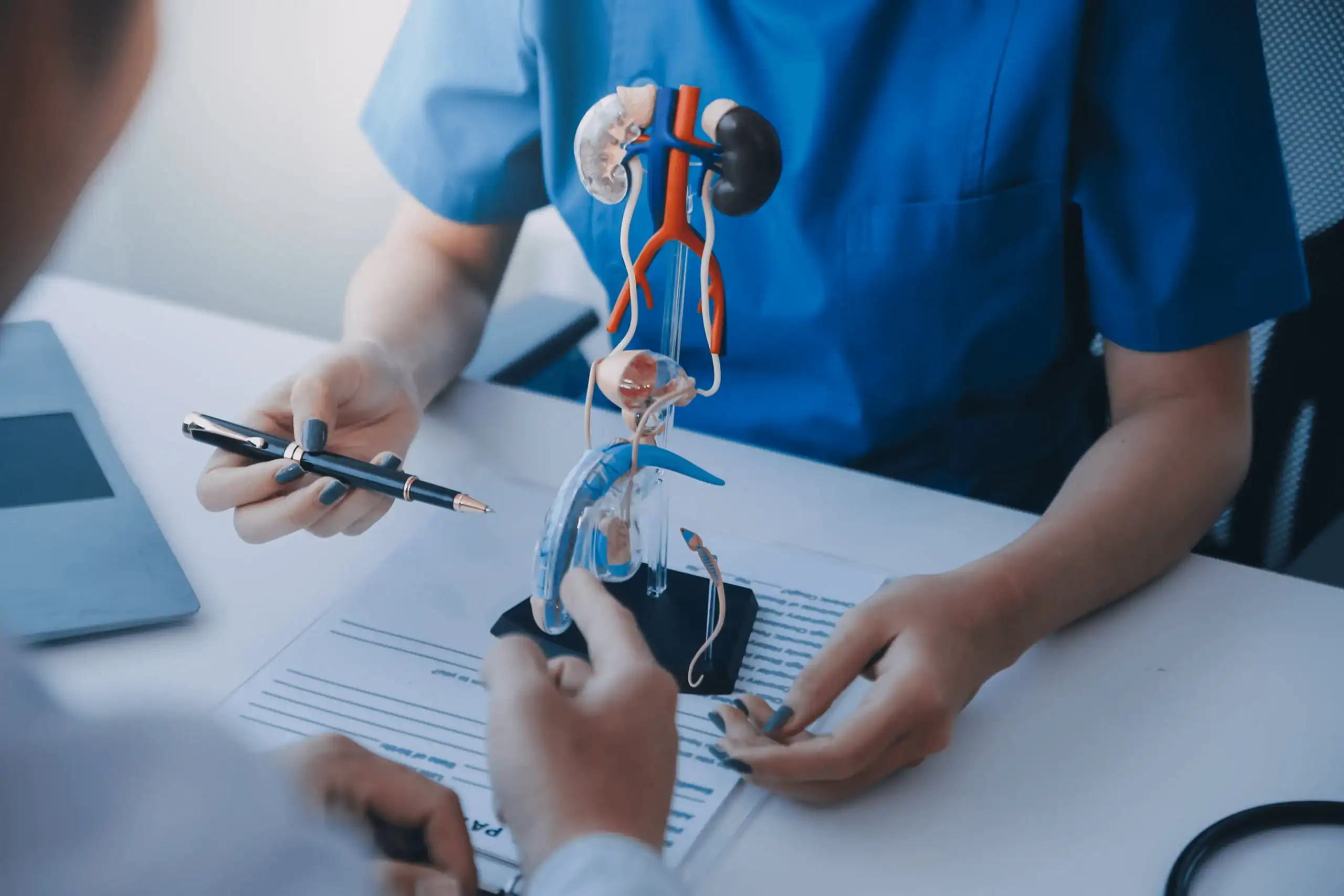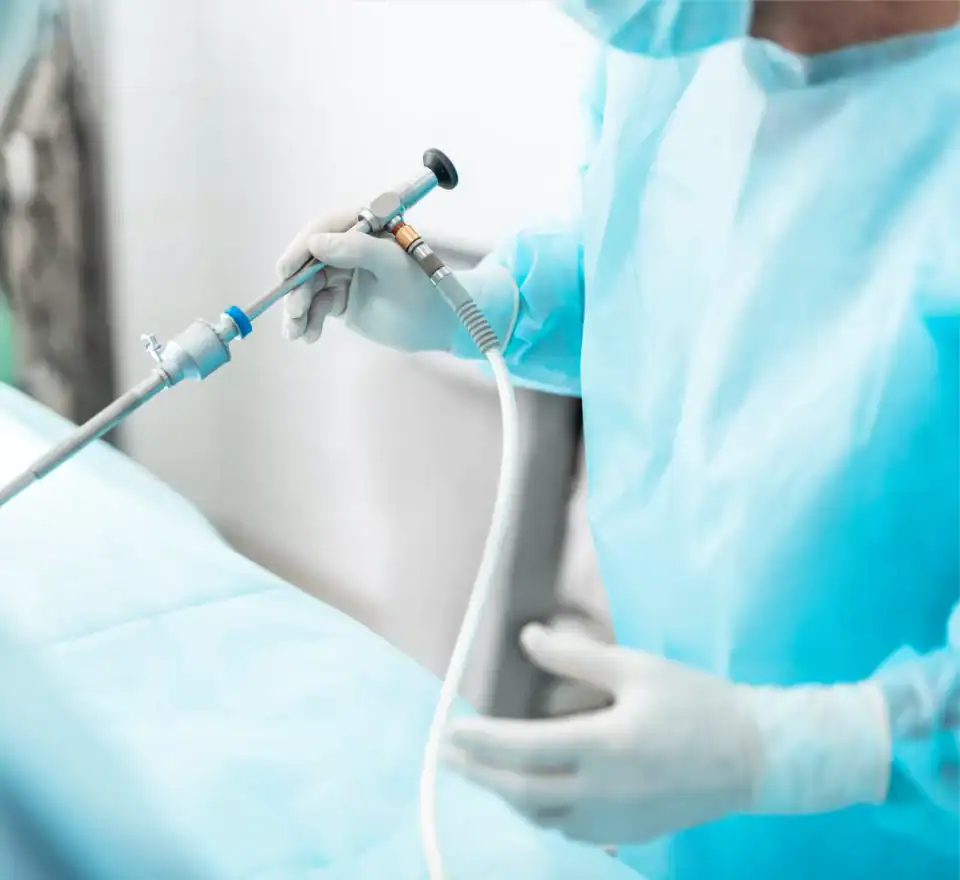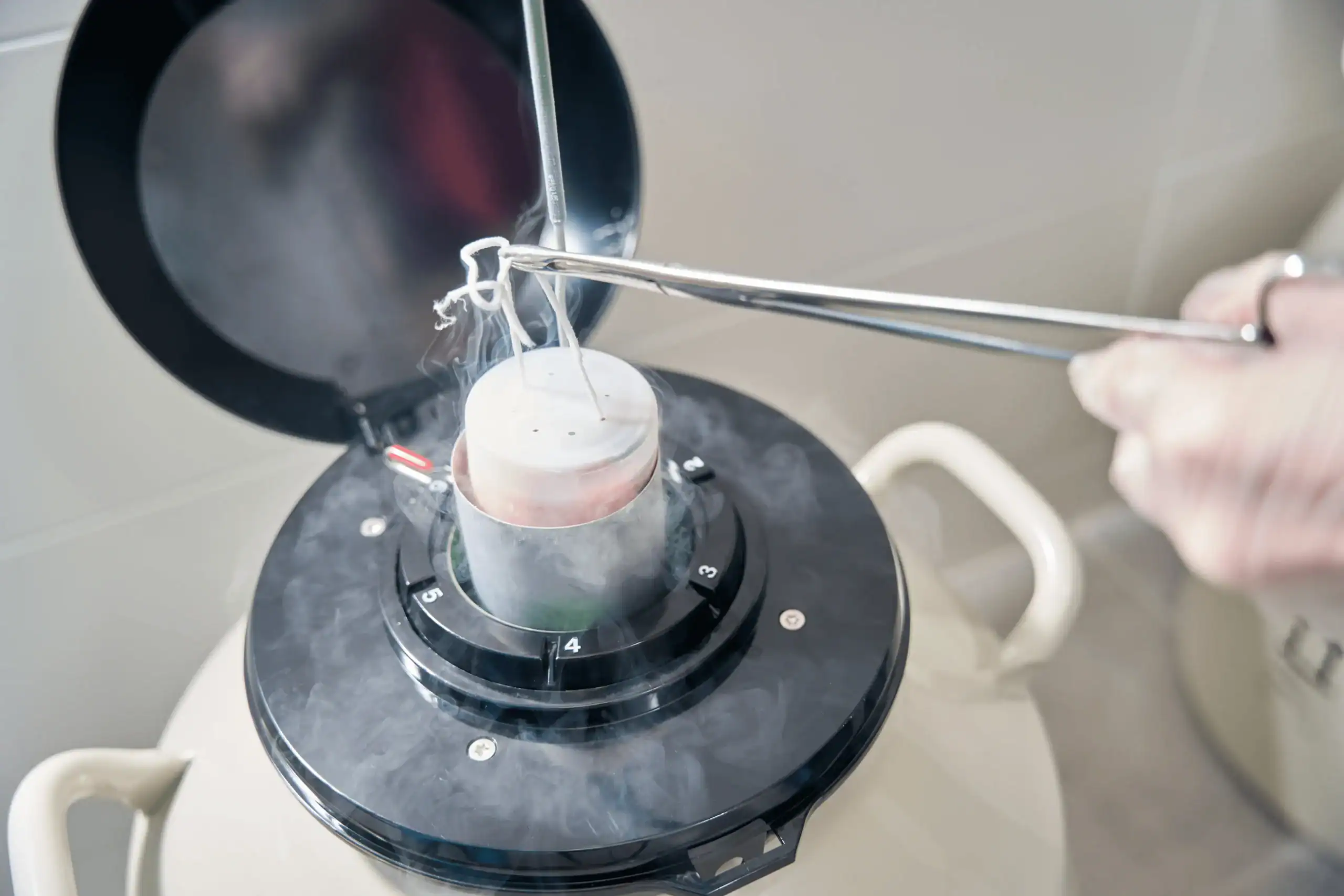Male Infertility
Male infertility is the inability of a couple to conceive despite a year of regular, unprotected intercourse. It affects about 1 in 7 couples, significantly impacting reproductive health. Male infertility may involve issues with sperm production, function, or delivery, complicating fertilization. This complex condition often requires a multidisciplinary approach involving urologists and reproductive endocrinologists for proper assessment and management.

Symptoms
- Changes in Sexual Function
- Erectile Dysfunction: Difficulty achieving or maintaining an erection.
- Premature ejaculation
- Pain During Intercourse: Pain due to infections or anatomical issues, reducing intercourse frequency
- Emotional Symptoms
- Depression: Persistent sadness and loss of interest from the emotional burden of infertility.
- Feelings of Inadequacy: Self-doubt and a sense of failure.
- Pain in the Reproductive Area
- Discomfort, Lumps, or Swelling: Issues like varicocele or infections can cause testicular pain or lumps, affecting sperm quality.
- Hormonal Abnormalities
- Loss of facial and body hair
- Low sperm count
Causes
Multiple factors can cause male infertility:
- Environmental Factors
- Radiation: Exposure to X-rays or radiotherapy.
- Heat: Hot tubs, saunas, or tight clothing.
- Medical Causes
- Chronic Infections: STIs like HIV can damage reproductive organs, impairing sperm production.
- Erectile Dysfunction: Prevents effective ejaculation.
- Varicocele: Reduces sperm quantity and quality.
- Klinefelter Syndrome: Impairs testicular function.
- Medications: Chemotherapy and steroids can negatively impact fertility.
- Lifestyle Factors
- Smoking and Alcohol: Excessive use decreases sperm count and motility.
- Obesity: Causes hormonal imbalances, affecting sperm production.
- Stress: Interferes with hormone levels, reducing sperm quality.
When
- Sexual Problems: Ejaculatory disorders, dyspareunia, varicocele, and erectile dysfunction require medical evaluation to determine underlying causes.
- Family History of Infertility: Genetic anomalies such as Klinefelter syndrome and Y chromosome microdeletions necessitate genetic counselling and testing.
- Age Factor: Women over 35 and men with advanced paternal age should seek evaluation after six months of unprotected intercourse.
- Underlying Medical Conditions: STIs, hormonal imbalances, and endocrine abnormalities require diagnosis and management by a fertility specialist.
- Lifestyle Factors: Smoking, excessive alcohol consumption, and obesity impair fertility.
Why Choose Us
Choosing the right fertility clinic is crucial for starting your family. At Birla Fertility & IVF, we offer personalised care with expert specialists guiding you every step of the way. Our advanced labs and outstanding success rates have helped over 2,30,000 patients achieve their dream of parenthood.
Frequently Asked Questions
Male infertility is diagnosed if a couple fails to conceive after a year of regular, unprotected sex. Diagnosis includes medical history, physical exam, and semen analysis to assess sperm health.
Yes, it’s still possible to conceive with various assisted reproductive technologies, such as intrauterine insemination or in vitro fertilisation, using donor sperm.
Consult a fertility specialist for a thorough evaluation. Treatment options may include lifestyle changes, medication, surgical interventions, or assisted reproductive technologies.
Seek medical advice from a urologist or reproductive endocrinologist. Treatment may involve addressing underlying causes, medication, surgery, or assisted reproductive technologies.
Yes, conception is still possible with a low sperm count, but it may reduce the chances of natural conception. ART procedures like IVF can assist in achieving pregnancy.
Book an appointment
Hassle-Free Appointment Booking
Select Preferences
I know my doctor
Costs for Various Treatments in India
- Double Marker Test Cost in India
- Transvaginal Ultrasound Cost in India
- Hysterectomy Surgery Cost in India
- Testosterone Test Cost in India
- Adenomyosis Surgery Cost in India
- Ectopic Pregnancy Treatment Cost in India
- Miscarriage Treatment Cost in India
- Bartholin Cysts Treatment Cost in India
- Preimplantation Genetic Testing (PGT) Cost in India
- Endometrial Receptivity Analysis (ERA) Cost in India
- 3D Ultrasound with Color Doppler Cost in India
- Endometriosis Treatment Cost in India
- Embryo Freezing Cost in India
- Semen Analysis Test Cost in India
- Azoospermia Treatment Cost in India
- Egg Donor IVF Cost in India
- HyCoSy Test Cost in India
- Endometrial Biopsy Cost in India
- HSG Test Price in India
- NT NB Scan Cost in India
- FSH Test price in India
- E2 (Estradiol) Serum Test Cost in India
- Surrogacy Cost in India
- Sperm Freezing Cost in India
- Varicocele Cost in India
- Egg Freezing Cost in India
- IUI Treatment Cost in India
- IVF Cost in India
- AMH Test Cost in India
- ICSI Treatment Cost in India
- STD Test Cost in India
Specialist for Various Treatments in India
- Cervical Cancer Doctors in India
- Infertility Doctor in India
- ICSI Doctors in India
- Best Gynaecologists in India
- Uterine Fibroids Specialists in India
- Erectile Dysfunction Treatment Specialists in India
- Endometriosis Treatment Specialists in India
- Hormonal Specialists in India
- Endocrinologists in India
- Azoospermia Doctors in India
- PCOS Doctors in India
- Varicocele Doctors in India
- Best Doctors for Ovarian Cysts in India
- Male Infertility Specialists in India
- IVF Doctors in India
- IUI Doctors in India
- Hormone Specialists in India

 Our Centers
Our Centers




















